| February 2026 report: Progress with plans for Napak, and news of visitors to Acheru |
| Napak: We were already aware of the biggest causes of Cerebral Palsy in Karamoja and have been planning accordingly. However, we continued to investigate the causes to ensure we weren't overlooking anything. While there has been research into causes, there are still gaps but what we see of research so far seems to back up what we are finding from the observations of our partners in the area. |
| While causes have been identified, we now need to look at prevention but I think we have a clear direction for getting our work started there. Our initial emphasis will be on improved access to any existing antenatal services, instruction on birth practices which can cause harm, and ensuring mothers know how to get transport to attend maternity services - we understand several projects do provide transport, but we don't know how many people are aware of this. |
| We have received further generous help towards putting up our small building at Napak and hope work can now proceed quickly there. I should be able to report on this in detail in the next circular, as well as looking at Karamoja and why Napak seems the most suitable base for our work there. |
| While I have been looking at prevention of CP, we won't be overlooking the needs of those children already affected and hope we will be able to use our experience to help. |
| Nabisubi Rahuma is the fifth born of six children, and a number of her siblings were also born with leg deformities. Several improved as they grew, but her brother Hakim required treatment at Acheru. This was made much more difficult because of the long delay before being brought to us, but intervention with Rahuma was much earlier making her treatment and recovery much more straightforward. |
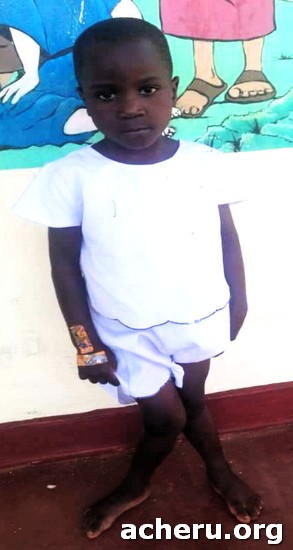
|
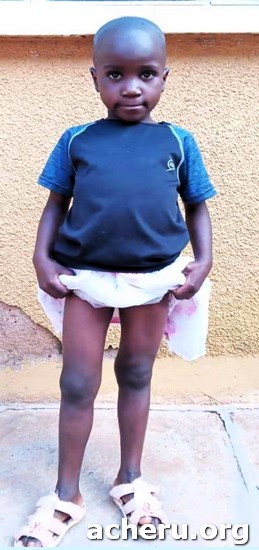
|
| More visitors: We had a number of visitors to Acheru before Christmas. I've already mentioned the delegation from Cameroon brought to Acheru by the Ugandan Ministry of Health to look at our methods of treating club feet. They also took an interest in our Cerebral Palsy work and are pictured with Joyce in our almost completed CP ward where we want to work with very young children as inpatients. |
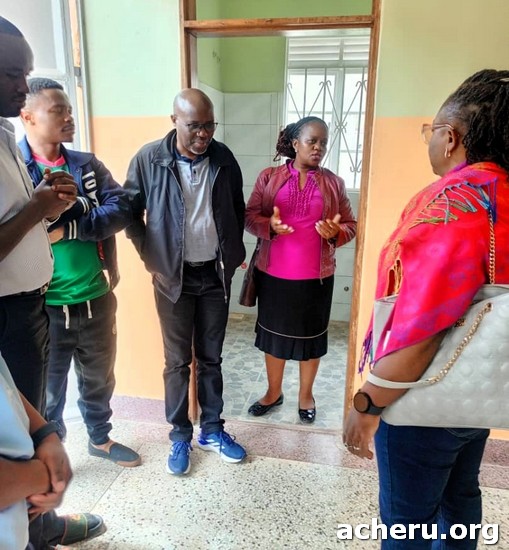
|
| Students are often brought to Acheru through our partnerships with several universities, and we hear from a number of them the impression our work made. The students pictured are from Congo, they seemed to appreciate their visit and it's a big encouragement to our Acheru staff to see their work so widely recognized and setting an example for what can be done for disabled children. |
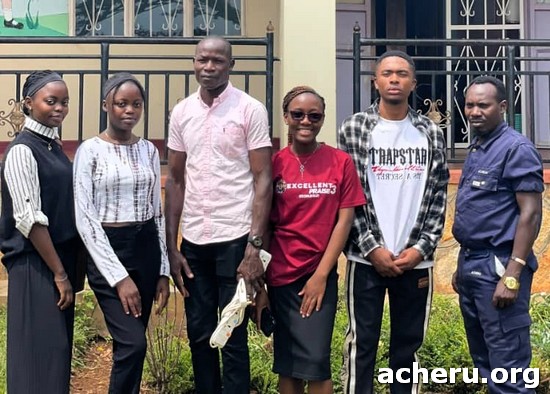
|
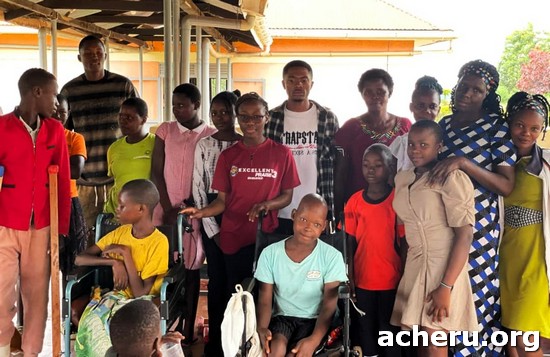
|
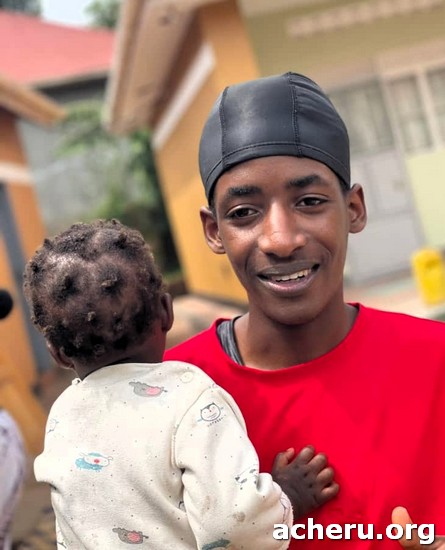
|
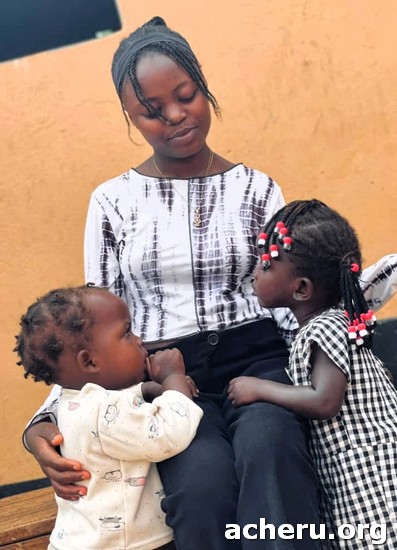
|
| The Christmas parties are always a highlight of the year at Acheru, and an opportunity to invite guests to make them aware of what we are doing. The picture shows Joyce receiving gifts from DFCU Bank staff who came to the most recent party. |
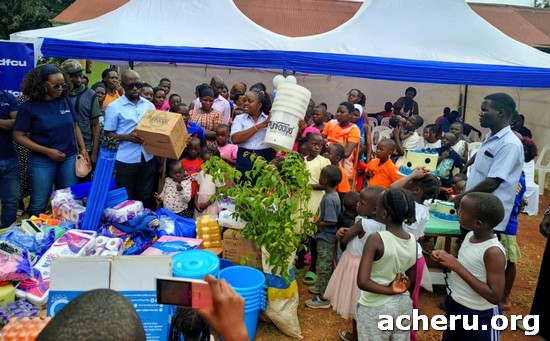
|
 
|
Return
to full Acheru website
|
|










